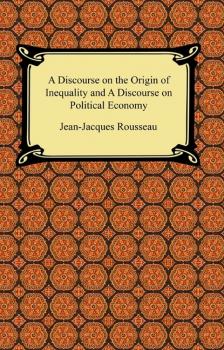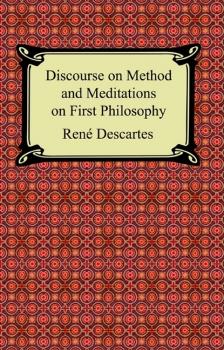ТОП просматриваемых книг сайта:















Афоризмы и цитаты
Различные книги в жанре Афоризмы и цитаты, доступные для чтения и скачиванияАннотация
Benedict de Spinoza, a Jewish-Dutch philosopher, laid the foundation for the Enlightenment movement of the 18th century in Europe and is regarded as one of the great rationalists of 17th century philosophy. Presented here are «A Theologico-Political Treatise» and «A Political Treatise», two works that precede Spinoza's most famous work «Ethics». In «A Theologico-Political Treatise» Spinoza argues for the separation of theology and philosophy insisting that whereas the goal of theology is obedience, philosophy aims at understanding rational truth. Spinoza believes that in order for man to realize his full potential a society organized around the principles of reason is necessary. In «A Political Treatise» Spinoza analyzes the forms of government: monarchy, aristocracy, and democracy. Based on his analysis he favors democracy, which he refers to as any representative government. The highly influential works of Spinoza laid the foundation for many of the concepts that we see in modern political life.
Аннотация
Thirteen of Plato's most well-known dialogues are included in the collection «Essential Dialogues of Plato.» Plato was a learned student of the early philosopher Socrates. Because Socrates did not write any works before his untimely death, Pluto took Socrates' beliefs and expressed them through imagined dialogues between the philosopher and his students. It was the first time in Western history that a philosophical dialectic between the teacher and student was developed. In the dialogues, Socrates and a student discuss multiple aspects of life through a similar structure. The student, in his ignorance, makes a wide, generalized statement, and Socrates then questions their thought processes. While Socrates was not trying to push his students into thinking a certain way, he wanted his students to discover their own truths through rational thinking and questioning the world. Plato showed this poignantly in his dialogues, which preserved his teacher's legacy while solidifying Plato himself as one of the most unique literary minds in early Western civilization. Plato not only fleshes out the characters and creates narrative story arcs in his dialogues, but he even injects humor and wit into his works. Some of the works included in this text are «Ion,» «Gorgias,» «Phaedrus,» «Crito,» and «Laws.» «Essential Dialogues of Plato» is a must-read for any serious student of philosophy as well as those with an interest in Western values and beliefs.
Аннотация
First set forth in lectures given at the University of Berlin in the 1820s, Hegel's «Philosophy of History» fully explores his ideas on many of the major and minor philosophers who preceded him on the subject of world history. Essentially, Hegel wished to demonstrate that history follows reason, and hence the direction and meaning of history could possibly be discovered. Hegel traced a progression of understanding from Eastern pantheism to a more individualistic and freedom-producing understanding in his own time. Ultimately, Hegel attributes the natural progress of history to an absolute spirit, and that in acknowledging this spirit, as well as the evil in history, reason can clearly be seen also, reconciling the two. A dense but richly informative and thorough work, Hegel's remarkable mind clearly excels in this more major work in his writings.
A Discourse on the Origin of Inequality and A Discourse on Political Economy - Jean-Jacques Rousseau
Аннотация
Contained within this volume are two discourses by Jean-Jacques Rousseau. In «A Discourse on the Origin of Inequality» Rousseau examines the causes of the inequalities that exist among men concluding that it is the natural result of the formation of any civilization. In «A Discourse on Political Economy» Rousseau examines the nature of politics and their effect on people. These two works lay a solid foundation for the political philosophy of Rousseau and are a must read for any student of political science or philosophy.
Аннотация
The Roman poet known to the English speaking world as Ovid is best known for his work Metamorphoses, a mythological epic which chronicles the history of the world from its creation to the deification of Julius Caesar. Widely considered as one of the most important authors of Latin literature, Ovid produced an extensive body of work. Some of these works have been lost to history and in the case of the works of this volume have a doubtful attribution to the author. «Halieutica» or «A Treatise on Fishing,» «Nux» or «The Walnut Tree,» and «Consolatio ad Liviam» or «Consolation to Livia» are amongst the works that at one time were contributed to Ovid but are now considered to be spurious. These works are presented here in this volume in an English prose translation by Henry T. Riley. «A Treatise on Fishing» is a short work which as one would assume details the manner and method by which fish might be caught. The Walnut Tree is a monologue spoken by a walnut tree urging a group of young boys not to pelt her with stones in order to get at her nuts. «Consolation to Livia» is a consolation to Augustus' wife Livia on the death of her son Drusus. Also included in this volume are a handful of fragmentary works. While the attribution of these works may be in doubt their inclusion in the corpus of Ovid provides meaningful insight into the scholarship of the author.
Аннотация
Aristotle's «Poetics» is the world's first treatise on literature. Written in the fourth century B.C. Poetics is a detailed analysis of drama and poetry with its greatest emphasis on tragedy. Aristotle outlines the elements of good drama drawing upon specific examples from the great literature of ancient Greece. An essential read for any student of classical literature, Aristotle's «Poetics» will also provide great insight for the modern theatre student.
Аннотация
Plato's «Phaedrus» is a dialogue between Phaedrus and the great Greek philosopher Socrates. Phaedrus has been spending the morning with Lysias, the celebrated rhetorician, and is going to refresh himself by taking a walk outside the wall, when he is met by Socrates, who professes that he will not leave him until he has delivered up the speech with which Lysias has regaled him, and which he is carrying about in his mind, or more probably in a book hidden under his cloak, and is intending to study as he walks. The imputation is not denied, and the two agree to direct their steps out of the public way along the stream of the Ilissus towards a plane-tree which is seen in the distance. There, lying down amidst pleasant sounds and scents, they will read the speech of Lysias.
Аннотация
"The Case of Wagner" is a critique of German composer Richard Wagner in which Friedrich Nietzsche makes a very public split with the musician. Nietzsche found himself at odds with Wagner's increasing involvement in the Völkisch movement and anti-Semitism. The critique of Wagner is something that is seen throughout Nietzsche's work, beginning with «The Birth of Tragedy», wherein he praised Wagner as fulfilling a need in music to go beyond the analytic and dispassionate understanding of music. Further praise for the musician can be found in Nietzsche's essay 'Wagner at Bayreuth', contained in «Untimely Meditations». However in «Human, All Too Human», Nietzsche begins to express his disillusion with Wagner the composer and the man. «The Case of Wagner» was one of the last works authored by Nietzsche. It was followed by «Nietzsche contra Wagner», also included in this edition, in which Nietzsche summarizes his criticisms of Wagner from his previous writings.
Аннотация
Balthasar Gracián y Morales (1601-1658) assumed his final vows of the Jesuits in 1635, having been raised by his uncle, a priest, and studying theology in Zaragoza, Spain. Gracián became quite famous as a preacher, and wrote a number of literary works concerning politics, practical advice for life, and philosophy. Today he is known as the most representative writer of the Spanish baroque style called Conceptismo (Conceptism), a literary style characterized by succinct and subtle expressions of witty, significant ideas. «The Art of Worldly Wisdom» is a collection of about three hundred maxims and advice with commentary. His poetic use of rhetoric made Gracián appealing to readers, but because he published much of his work without the permission of his superiors, he was chastised by the church, and eventually sanctioned and exiled. This book was Gracián's most internationally popular work, and was translated into German by Schopenhauer, and into English by Joseph Jacobs in 1892.
Аннотация
Contained here are two of the most important philosophy works ever written, Descartes' «Discourse on the Method of Rightly Conducting the Reason and Seeking for Truth in the Sciences» and «Meditations on First Philosophy.» Descartes, who is considered to be one of the founding fathers of modern philosophy, lays forth the basics of his philosophy and expounds upon such monumental issues as the nature of knowledge and existence itself in these two important and pivotal works.










